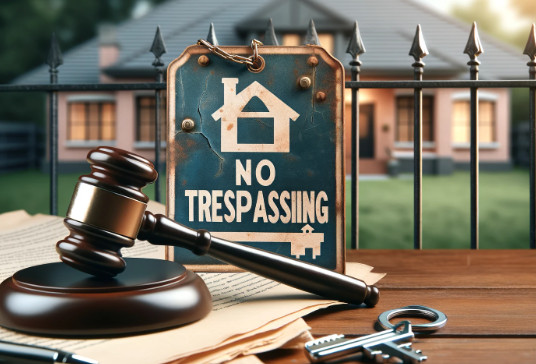
Squatters Rights Explained: A Deep Dive into Utah Regulations
Squatting, or occupying a vacant property minus the owner’s approval, is a exercise that is certainly neither supported nor recommended in every state in the US. However, the law relating to Squatters’ legal rights is a little confusing and differs between states. Utah is no different, and understanding the authorized components surrounding Squatters’ privileges in Utah is critical for landlords and tenants likewise. In this article, we are going to discover Utah’s legal guidelines on Squatters’ legal rights and exactly how they guard Squatters to some extent.
What exactly are Squatters rights in Utah?
In squatters rights in utah have legal rights, despite the fact that they are not explicitly understood to be these kinds of from the state’s statutes. Squatters’ privileges are essentially authorized arguments accustomed to rationalize keeping with a property that may be not officially their own. The legitimate concept behind Squatters’ privileges is named negative property, and Utah has acknowledged negative property since statehood. Below Utah law, a squatter may get lawful ownership of your home that they have busy for about seven several years without the owner’s permission. The squatter’s possession should be hostile – that means they are occupying the home minus the owner’s permission – actual, open, well known, and special. The squatter should also have paid for property income taxes in that time. As soon as the seven years have passed on, the squatter can apply for a calm name action, which could allow them to become the legitimate manager in the house.
Property owners and Squatters’ Privileges
For landlords in Utah, Squatters’ privileges can be quite a significant difficulty. Landlords who let a tenant to advance in with out completing an official hire file boost their risk that this tenant may eventually develop into a squatter when they remain on the properties right after the rent comes to an end or is terminated. As soon as a renter transforms in to a squatter, landlords should adhere to state statutes on eviction, which might consider for a longer time to eliminate a squatter from a leasing home when compared to a typical tenant.
The way to Protect Your Premises against Squatters in Utah
To avoid Squatters from occupying your home, landlords have to take actions to be sure the residence is not really deserted instead of left unwatched. This means fully getting the home using tresses and security systems to fend off anyone that may make an effort to split-in. When a landlord has explanation to believe that somebody has transferred onto their property unlawfully, it is actually vital to inform law enforcement immediately to start an eviction going forward.
Effects for Squatters of Busting Utah Law
Squatters in Utah face criminal fees if they are caught busting into a house they generally do not own or with no owner’s permission. The state of Utah has several legal guidelines that street address various elements involved with Squatting, which includes criminal trespass, robbery, and burglary. Felony burglary posesses a achievable 15-12 months prison phrase in Utah, although legal trespass within a property comes with a probable prison phrase of 180 days and nights and a great of $1,000. Squatters who remain a house soon after an eviction proceeding determine orders placed these people to abandon can also be arrested for trespassing.
Conclusion
Comprehending Squatters’ proper rights in Utah is crucial for landlords, renters, and anyone that owns property in Utah. When Squatting will not be a attractive or legal process, learning the legitimate elements behind Squatters’ privileges may help guard your home and stop Squatters from turning into entrenched. Property owners will need to take actions to guard their hire components and remain vigilant for almost any signs of unlawful occupation, alerting police force when necessary. Finally, it is crucial to use a knowledgeable lawyer to help browse through the legislation if your Squatting condition develops.
In conclusion, Squatters have rights in Utah, but those rights are limited. Homeowners must follow Utah’s laws and regulations, get legal counsel when situations develop, and consider required safeguards to safeguard their home. Awareness of the Squatting laws could possibly be the greatest safeguard to prevent any unfavorable property situation and protect your property.